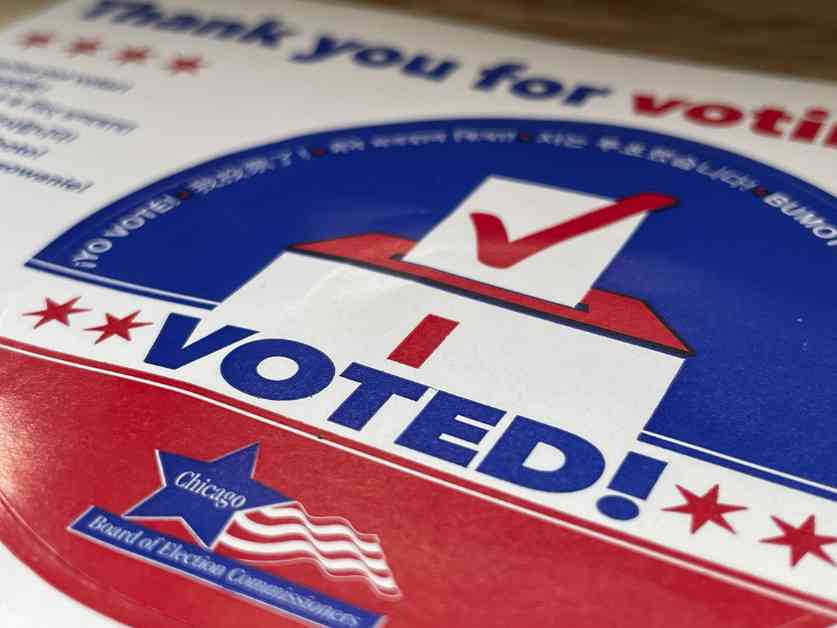This year, Illinois voters will be faced with three nonbinding referenda on the November 2024 general election ballot. One of the questions will ask voters to decide whether the state should impose civil penalties for candidates who interfere with election workers. This comes in response to concerns that supporters of Donald Trump in other states spread lies about the integrity of poll workers and even intimidated them with threats of violence during the 2020 election.
Dick Simpson, a professor emeritus of political science at the University of Illinois at Chicago, believes that the Illinois referendum is a preemptive measure to prevent similar interference by Trump supporters in the state. While he acknowledges that Illinois may not have the same level of interference as other states, he emphasizes the importance of addressing potential issues early on.
Simpson explains that while the results of the referendum may not lead to immediate action, they can serve as a way to pressure lawmakers to address important issues that may not be at the top of the political agenda. In the past, similar referenda have influenced legislative action, such as the increase in the state minimum wage following a successful referendum in 2014.
In addition to the question on candidate interference with election workers, two other nonbinding advisory questions on the ballot will address taxing millionaires to relieve property tax burdens and expanding health insurance coverage for in vitro fertilization and reproductive treatments. These “hot-button” issues are expected to drive up voter participation as voters are motivated to weigh in on these important topics.
While voters will have the opportunity to share their opinions on interfering with election workers, it’s important to recognize the challenges faced by poll workers on the ground. Poll workers like Fernando Zavala and Alyssa Cox have shared their experiences of dealing with frustrated voters who may act out or harass them during the voting process.
Zavala, who has been working as a polling place technician for 17 years, emphasizes the importance of running a smooth polling place experience for voters despite facing occasional harassment. Cox, an election judge, recalls instances of voters becoming aggressive and rude towards poll workers due to misunderstandings or frustrations with the voting process.
As we approach the upcoming election, it’s crucial to remember the dedication and hard work of poll workers who play a vital role in ensuring fair and smooth elections. By treating poll workers with respect and understanding, voters can contribute to a positive and inclusive voting experience for everyone involved. Remember, poll workers are there to help you, and their goal is to ensure that everyone has the opportunity to vote.
